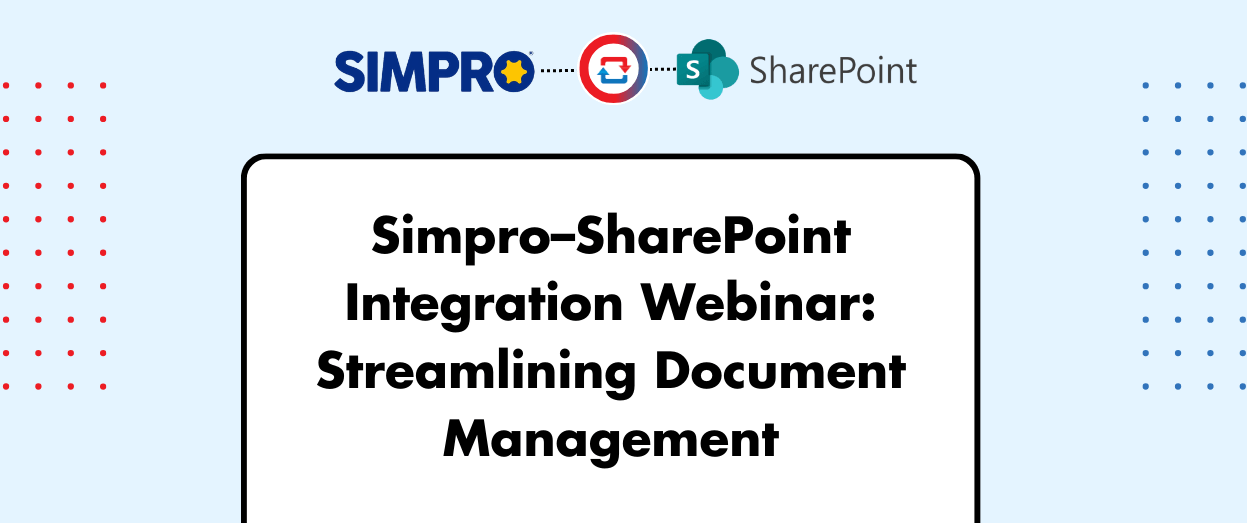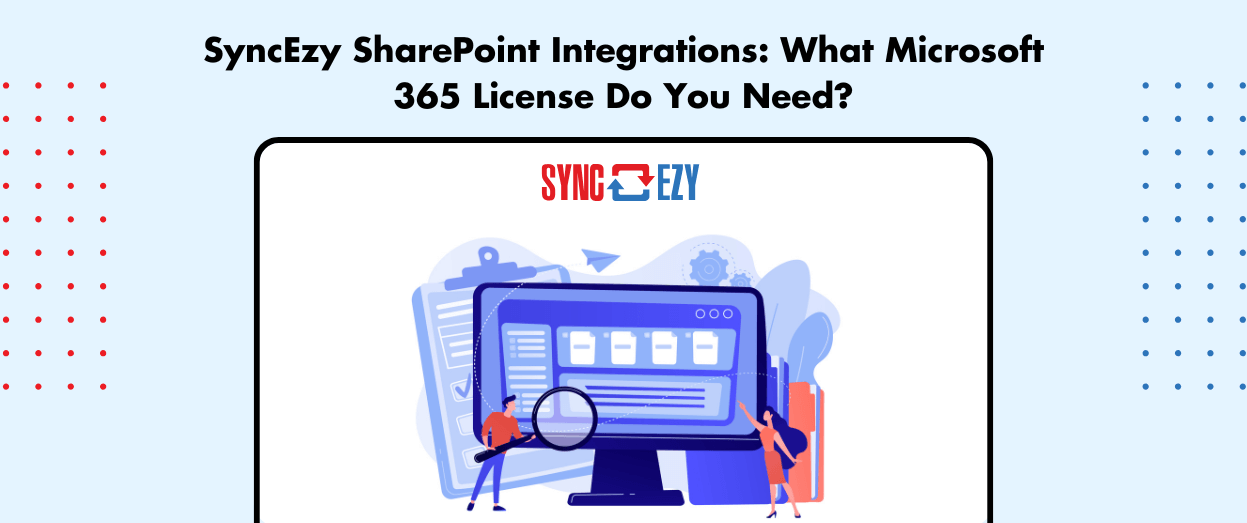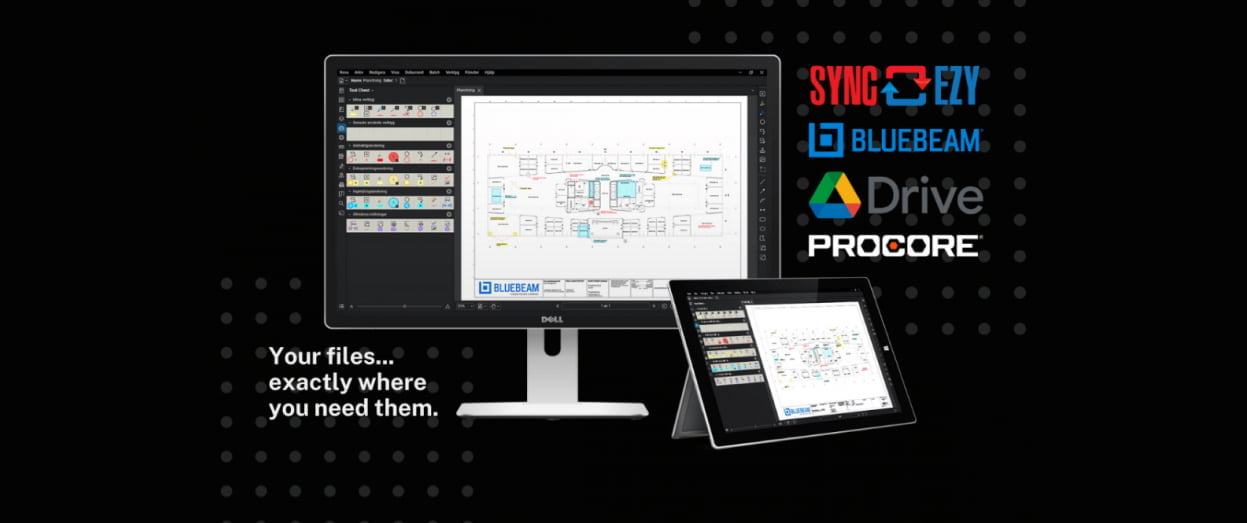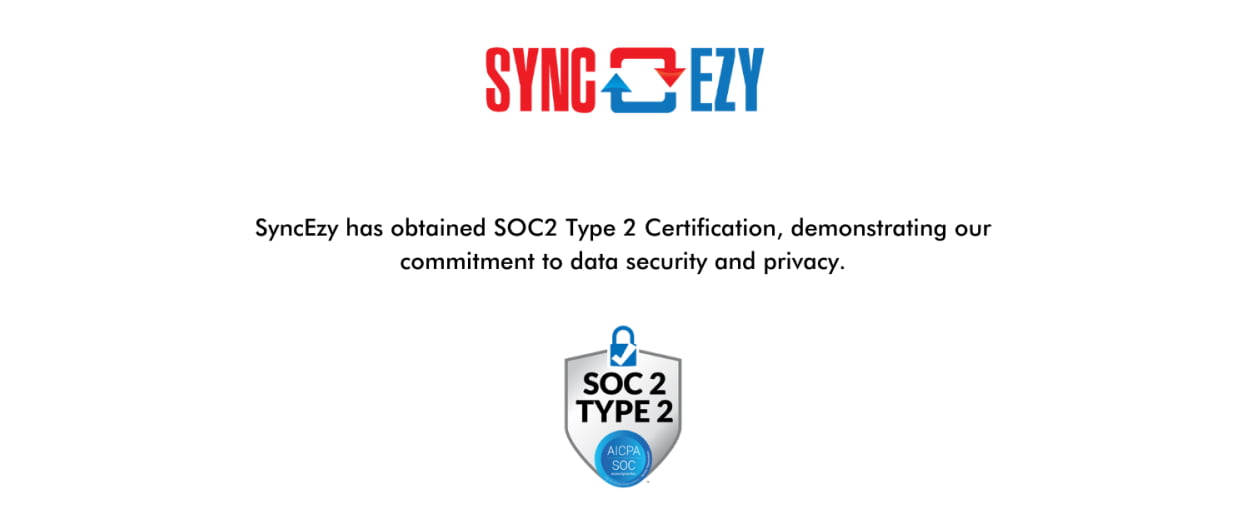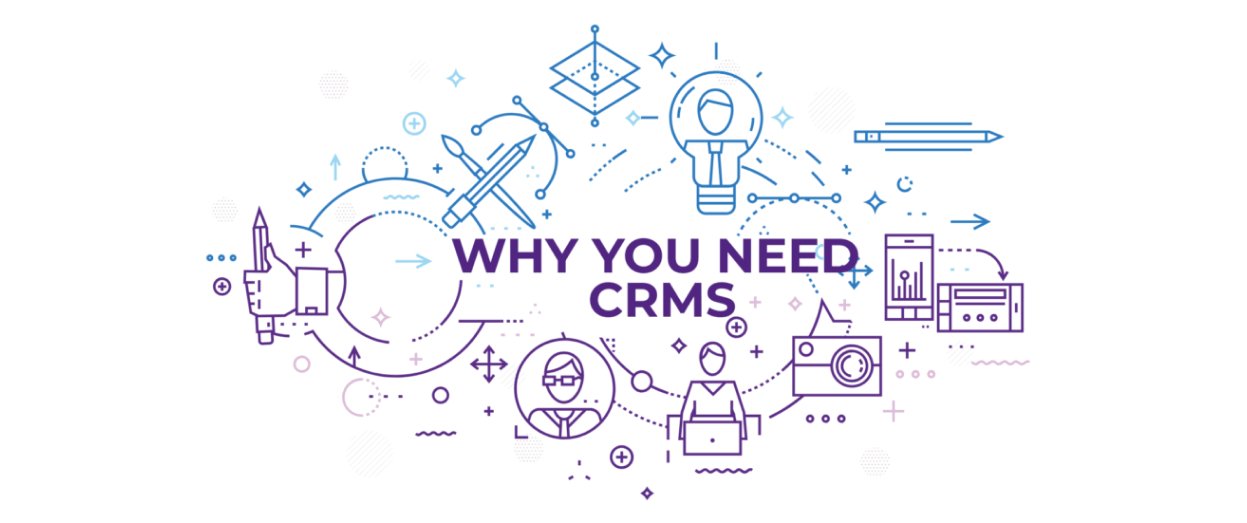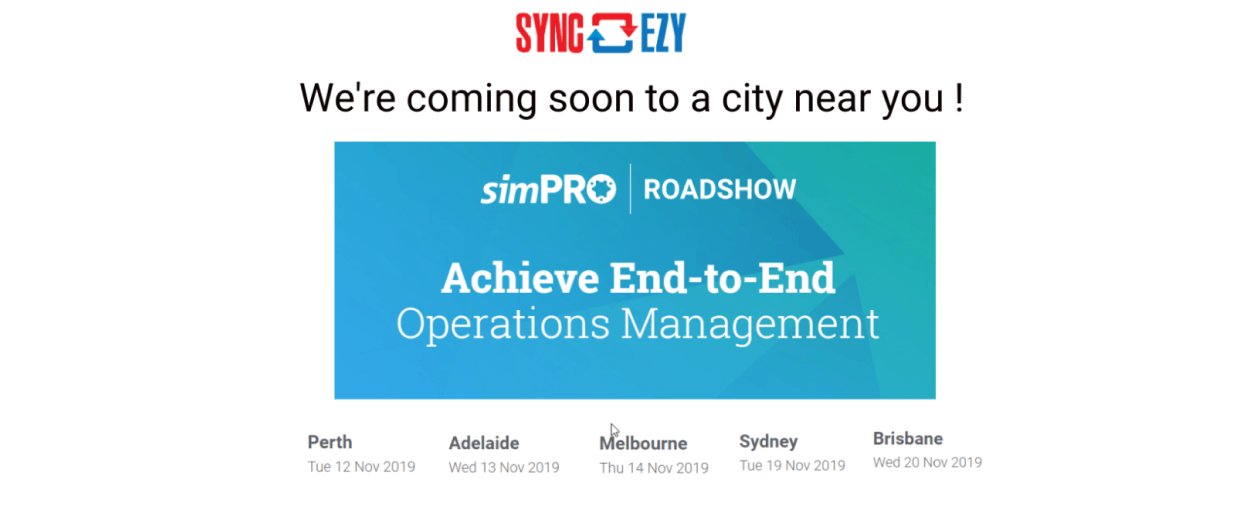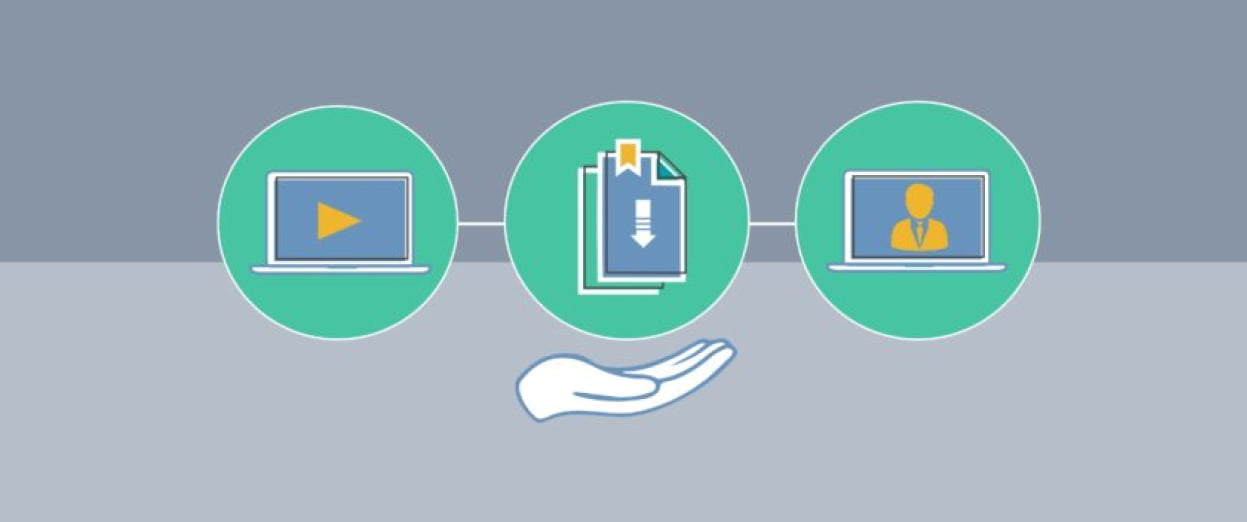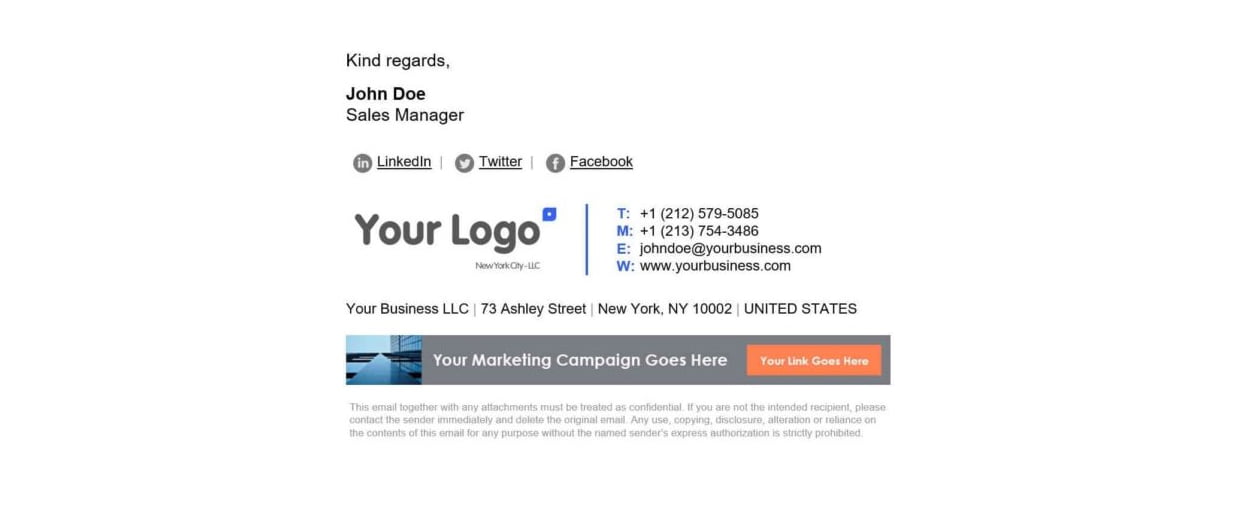
Hari Iyer | SyncEzy
CEO7 Min Read
May 23, 2019
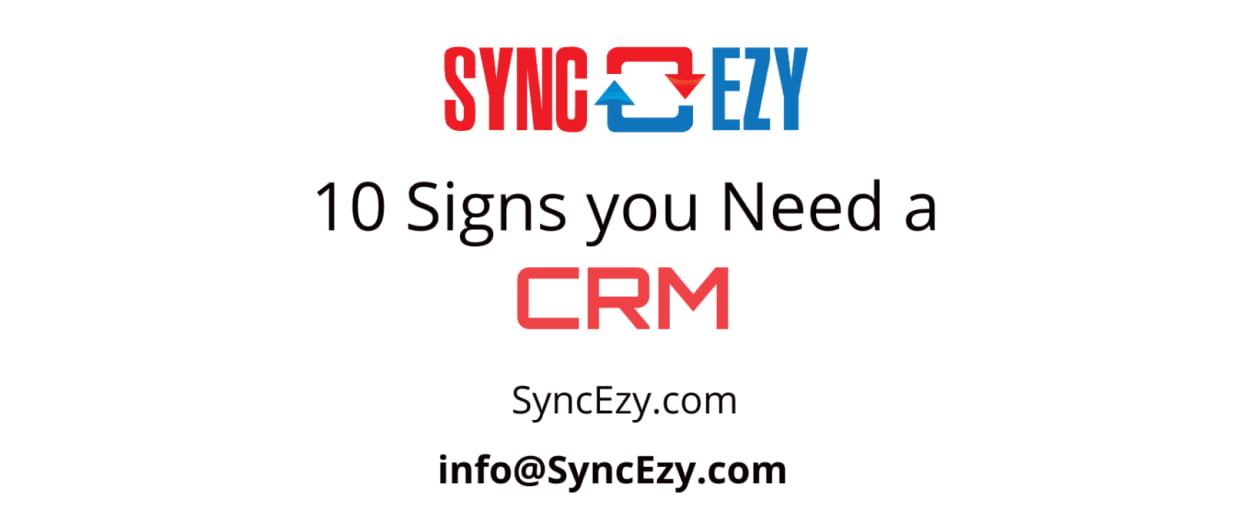
There comes a point in your business when you just can’t keep up. Leads, customers, tasks – things eventually start to slip through the cracks. One very effective way to take care of this problem, and supercharge your business in ways you haven’t even thought of yet, is to implement a CRM (or Customer Relationship Management) system.
Here are 10 tell-tale signs that your business is in desperate need of a CRM:
1. You have a team of people interacting with customers
(and need to know who has done what)
When you have multiple people in your business working with your customers, it is important for each person in your team to know how and when everyone else has been in contact with the person they are about to call or email. Most CRMs provide a central place for notes and call histories, so your customers never feel harassed, or worse, forgotten.
2. You can’t keep everything in your head anymore!
(or it might explode)
Sales meetings, follow-up phone calls, email replies, contract dates, tender deadlines….
We all have so many things to remember, and these crucial dates and requirements fall at different times for each of your leads and customers. Calendars become cluttered, notes get lost. A CRM can take the pressure off – with automated tasks, sales pipeline stages and triggers, reminders and calendar tools – so you can see exactly what needs to be done and by when.
3. You care about the level of service your customers get
(and want to keep track of it)
Your customer base is your bread and butter. Happy customers are customers that will stay with you, and you need to know that your team are doing everything in their power to meet their needs, quickly and competently.
A CRM gives your Customer Service team easy access to customer history, and a place to record any issues that may arise. Helpdesk modules enable issues to be assigned to the team member most suited to resolve that particular case, and tasks can be created and tracked, with deadlines, so that whatever needs to be done is done according to pre-configured deadlines and the results can monitored for quality assurance.
4. You want all your customer contact history in one place
(so your team can work better together)
Email history in Outlook, phone calls in a spreadsheet, letters in a filing cabinet, meeting notes in Fred’s head – unless you can be in three places at once (and a mindreader), it would be very difficult to know exactly what communication has taken place with a certain customer or lead. This is no way to run a business!
Communication history can be accessed immediately against any contact record in a CRM. Emails that have been sent, phone calls that have been made and how long they took, meetings, notes, documents, upcoming and completed tasks – all of these are visible in a single screen and only a button click away.
5. You’ve spent money on Google Adwords
(and don’t want to lose those leads)
Leads are precious – especially when you have gone to the trouble of setting up PPC campaigns to get them! Once a lead is captured, time is of the essence – they need to be nurtured and converted to a sale before they lose interest!
Lead capture and nurture campaigns in a CRM take the leads captured by a form filled out as a result of Google Adwords campaign, a facebook ad or any other online marketing strategy, and then push them into smart, pre-strategised funnels designed to send emails, create tasks, trigger reminders and ultimately close deals. This results in a higher conversion rate and no more leads slipping through the cracks.
6. You want to track your Lead Sources
(so you know where your customers are coming from)
Knowing who your customers are and how they are entering your Sales Funnel is a brilliant way to refine your marketing efforts and get more bang for your buck. If one source is bringing in more leads than any other, then logic says you need to do two things as a result – 1: do more of what is working (duh) and 2: do something differently with what isn’t working as well, so you can try to make it better.
We’ve all heard Albert Einstein’s famous line: “Insanity is doing the same thing over and over again and expecting different results.” A CRM is a great tool to help you avoid doing just this – with business insights and records!
7. You want to analyse your online marketing
(So you can track which campaigns are bringing in the right leads)
This point is very similar to the previous one – but with one key difference. Online marketing tools (which many CRMs include) are smart when it somes to seamlessly gathering data from online sources. So tracking your online marketing efforts can be so much more than counting how many customers have “LinkedIn” in their Lead Source field.
Social media platforms, landing page apps, email marketing apps – these all have stats and metrics built in. They also have ways of getting this data out. The best CRMs include intelligent data collation and reporting tools so you can see, in one place, how all of your campaigns are performing, across all platforms, and then compare them.
Super cool!
8. You want to try email marketing
(but you don’t know where to start)
We all send emails. This is a no brainer. We’ve probably all played around in mailchimp at some point and sent a really exciting newsletter to our database. Chances are, not much happened as a result.
Email marketing is so much more than sending newsletters and special offers from time to time. Its success relies on how well you’ve defined your audience/s and how targeted your content is to reach, and resonate with, that audience.
All CRMs give you the means to break down your customer base into groups (or niches), so you can connect with them more effectively. Most of them also give you email tools to do the actual communicating too, and then the analysis to see how your customers engage.
9. You want to track customer engagement
(and see how effective your marketing actually is)
Following on from the previous point, engagement is the success measure of online marketing and email marketing.
Emails are pointless if they aren’t opened. If they are opened, reading doesn’t mean much either. You want your readers to DO something. Click on a link, watch a video, download something or navigate to your online store. Action is engagement.
When you have the tools to analyse how your customers (and potential customers) respond to your emails, you can test different strategies – subject lines, content types etc – so you can do more of what works and less of what doesn’t.
10. You want to understand your website stats
(and know what to do with them)
Your website is your primary online presence – like a billboard on the internet. What your website visitors do on your website provides a wealth of information you can use to get more leads, learn more about them, and know what questions they are looking for answers to, before they even ask them.
You can use data on which pages are performing better than others to optimise your site and enhance the user experience, and you can ultimately create a lead generation machine purely through the process of A/B Testing (or in simple terms – trial and error).
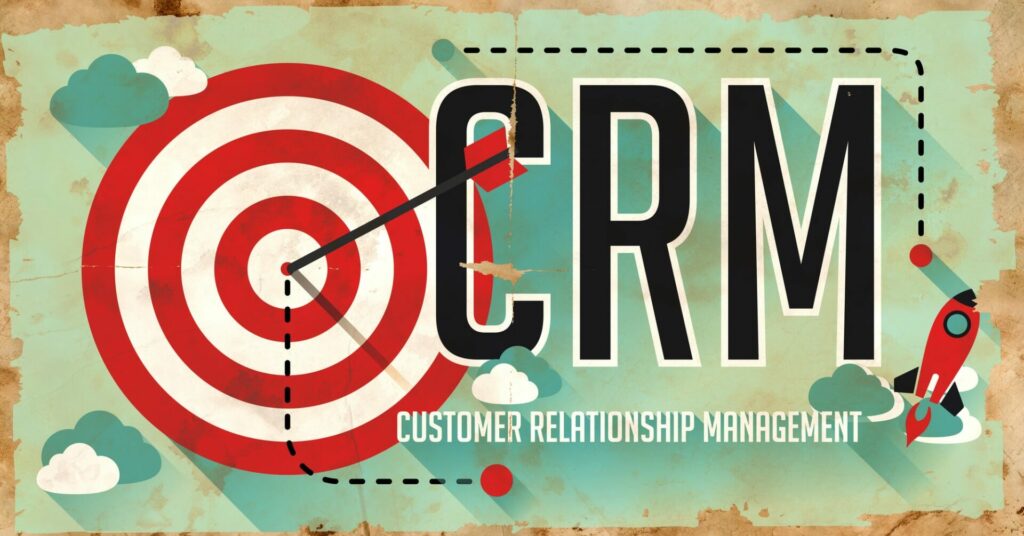
Where to start? There are so many CRM app options and it can be daunting trying to work out which is best for your business.
SyncEzy can help – we work with many platforms and can discuss your business needs to help you decide on the CRM that fits best. We can then help you implement it to make things even easier! Just get in touch and we’ll put you on the right path.
